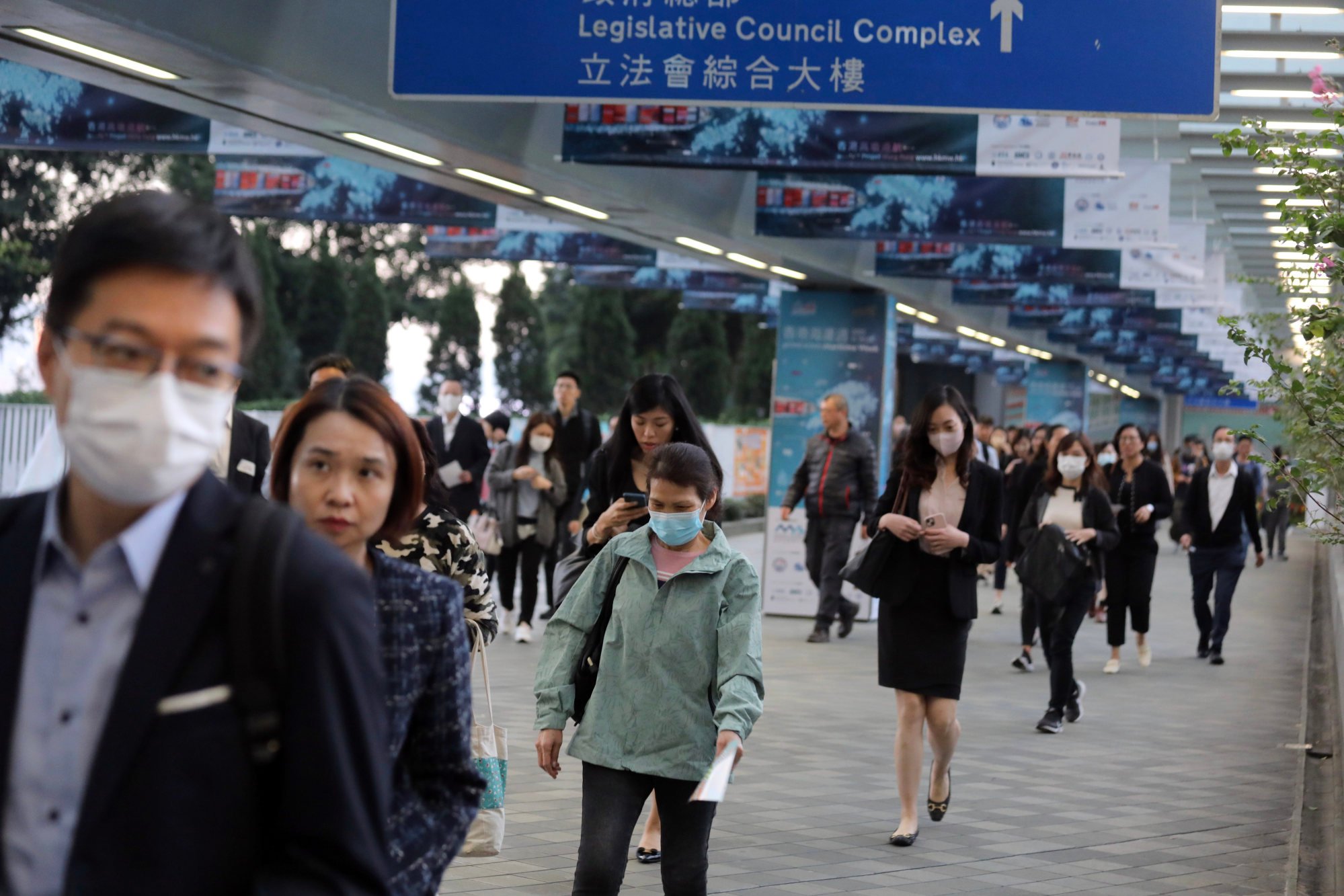
Hong Kong to teach new course on nation’s struggles to civil servants
- Programme will focus on how Chinese survived difficult times with help of ‘will to succeed’ and also on city’s role and contribution to ‘national rejuvenation’
- Course, to be offered to middle and senior-level government workers, part of broader ‘mindset building’ push
Hong Kong will introduce a new training programme about the nation’s struggles over the past century for middle and senior-level government workers as part of a fresh “mindset building” push to enhance their patriotism.
The programme will focus on how the Chinese survived difficult times with the help of their “will to succeed” and also on the city’s role and contribution to the “national rejuvenation”, according to the Civil Service Bureau.
The move followed positive feedback from civil servants taking part in ongoing training courses aimed at strengthening their national identity, awareness of state security and patriotism, the bureau said.
In a paper prepared for discussion at next Monday’s meeting of the Legislative Council panel on public service, the bureau said the Civil Service College placed a significant emphasis on “mindset building”.
“[The college] makes use of elements such as historical background, deeds of heroes, martyrs and role models, and traditional Chinese culture to enhance the emotional impact of its programmes so as to reinforce civil servants’ patriotic spirit and their shared commitment to serve the country and Hong Kong”.

As part of its latest plan, the college would roll out a new “thematic study programme on modern Chinese history” for managerial employees, according to the paper.
It was intended to “enhance their understanding of the history of our country’s struggle over the past century and Hong Kong’s role and contribution to the journey of national rejuvenation”.
“The programme makes use of important historical events to depict Chinese people’s will to succeed despite the difficulties faced by China in the modern age,” the paper said.
“With the use of interactive training modes … the programme aims to increase participants’ interest and engagement in learning, thereby strengthening their sense of national identity and commitment to contribute to the great rejuvenation of the Chinese nation.”
The bureau said a new e-learning platform would be launched in phases from the end of 2024 to promote “continuous learning on national affairs”. Resources covering such topics as national politics, foreign affairs, society and culture would be available to aid learning.
Number of sacked Hong Kong civil servants triples in 6 years
The top body of the national legislature passed a patriotic education law last year that also covers Hong Kong, Macau and Taiwan, as well as Chinese people overseas. The Hong Kong government pledged to promote such education even though it was not legally obliged to enforce it.
In his policy address last year, city leader John Lee Ka-chiu highlighted the importance of patriotic education to enhance national identity and appreciation of the richness and beauty of traditional Chinese culture.
In recent years, the government has organised a series of training and exchange programmes for civil servants at various levels to enhance their knowledge of national affairs.
Hong Kong civil servants warned over sharing private opinions on official policy
Last December, the government also sent a first batch of 10 civil servants to work in various government branches in Shenzhen for three months as part of an exchange programme.
According to the bureau, those who have taken part in the training programmes found them useful, saying it enabled them to better understand the characteristics of national policies at the state level.

